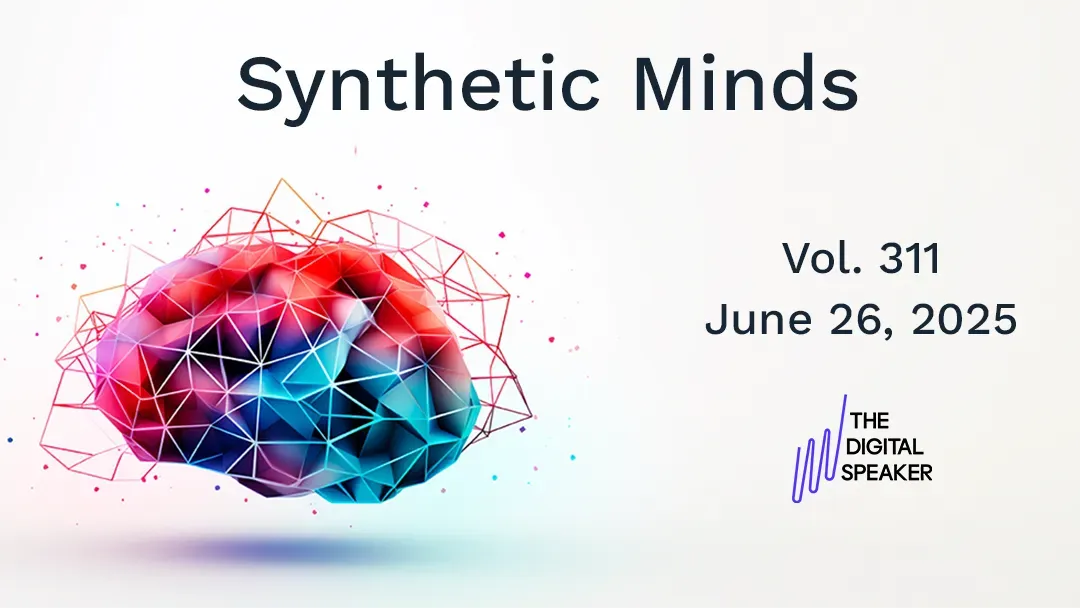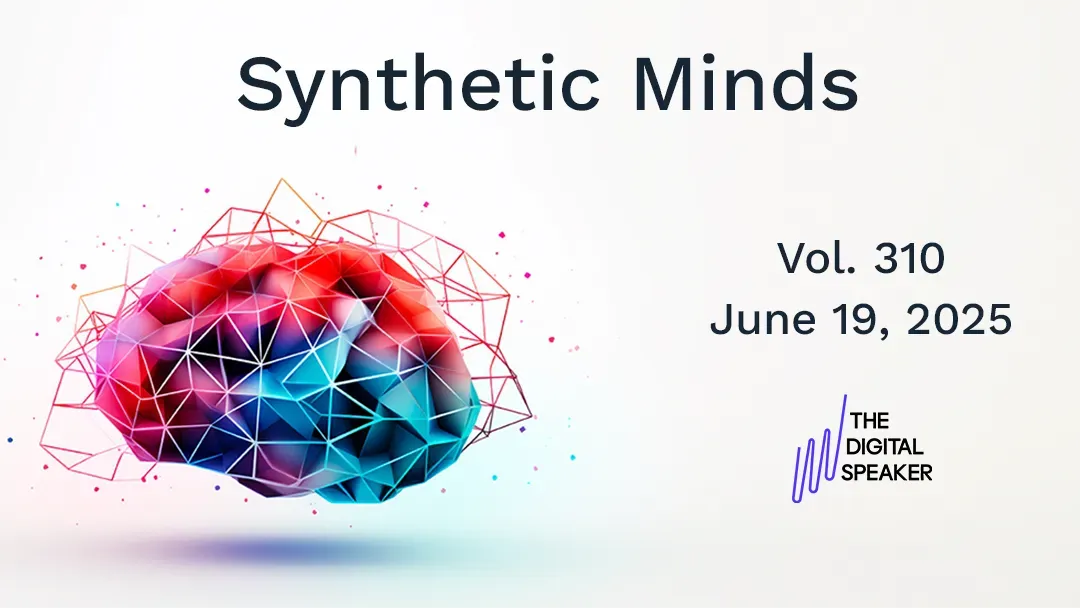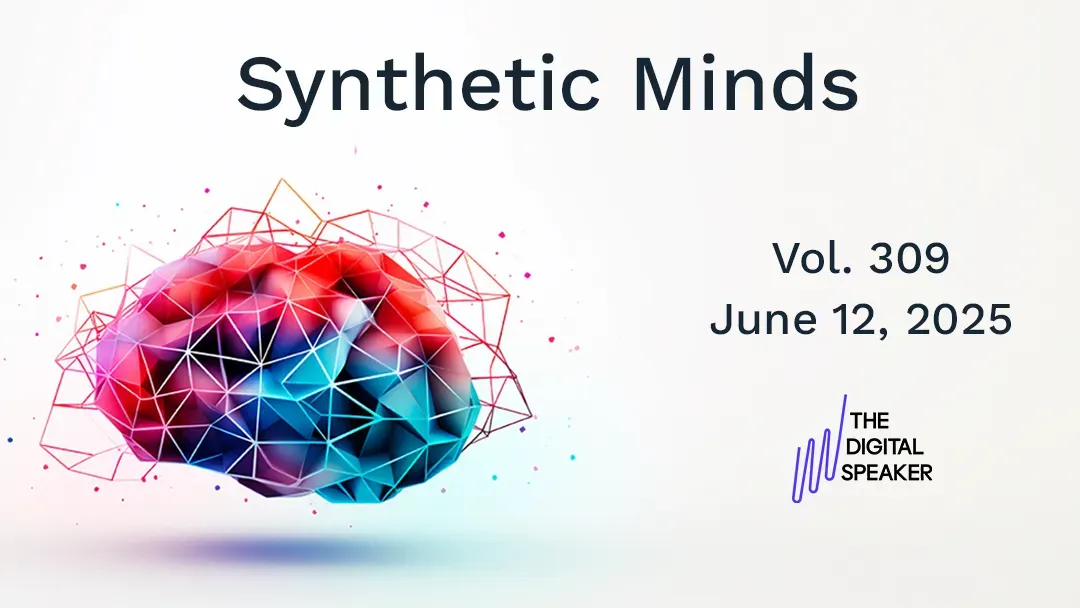Synthetic Minds: Why We Need Futures Thinking
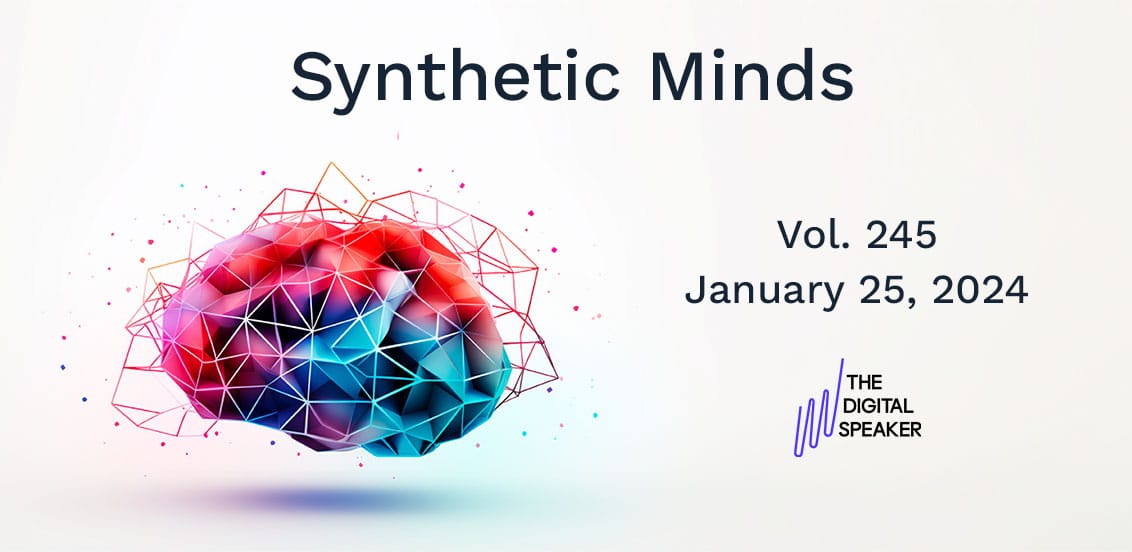
'Synthetic Minds', formerly known as the f(x)=e^x, serves as a mirror to the multifaceted, synthetic elements that are beginning to weave into the fabric of our society. The name acknowledges the blend of artificial and human intelligence that will shape our collective future, posing incredible opportunities and ethical dilemmas.
What Is Futures Thinking and How Can a Futurist Help?

My latest article:
Futures thinking is a forward-looking mindset to anticipate and influence the future as it unfolds. It starts by sensing signals - clues about emerging developments in technology, business, society and policy. Scenario planning, trend analysis and backcasting help explore different possibilities to challenge assumptions and widen perspectives.
Futures thinking has practical business applications for strategic planning, innovation and risk management by stress-testing strategies against multiple futures. Individuals can also use it for career and personal decisions by staying informed, continuously learning and having open discussions about change.
As futurists, we play a key role in helping organisations develop flexible, long-term strategies that are resilient to disruption by identifying upcoming shifts to respond proactively.
Connect with me on The Digital Speaker app and receive real-time insights, recommendations and chat with me on-demand via text, audio or video!
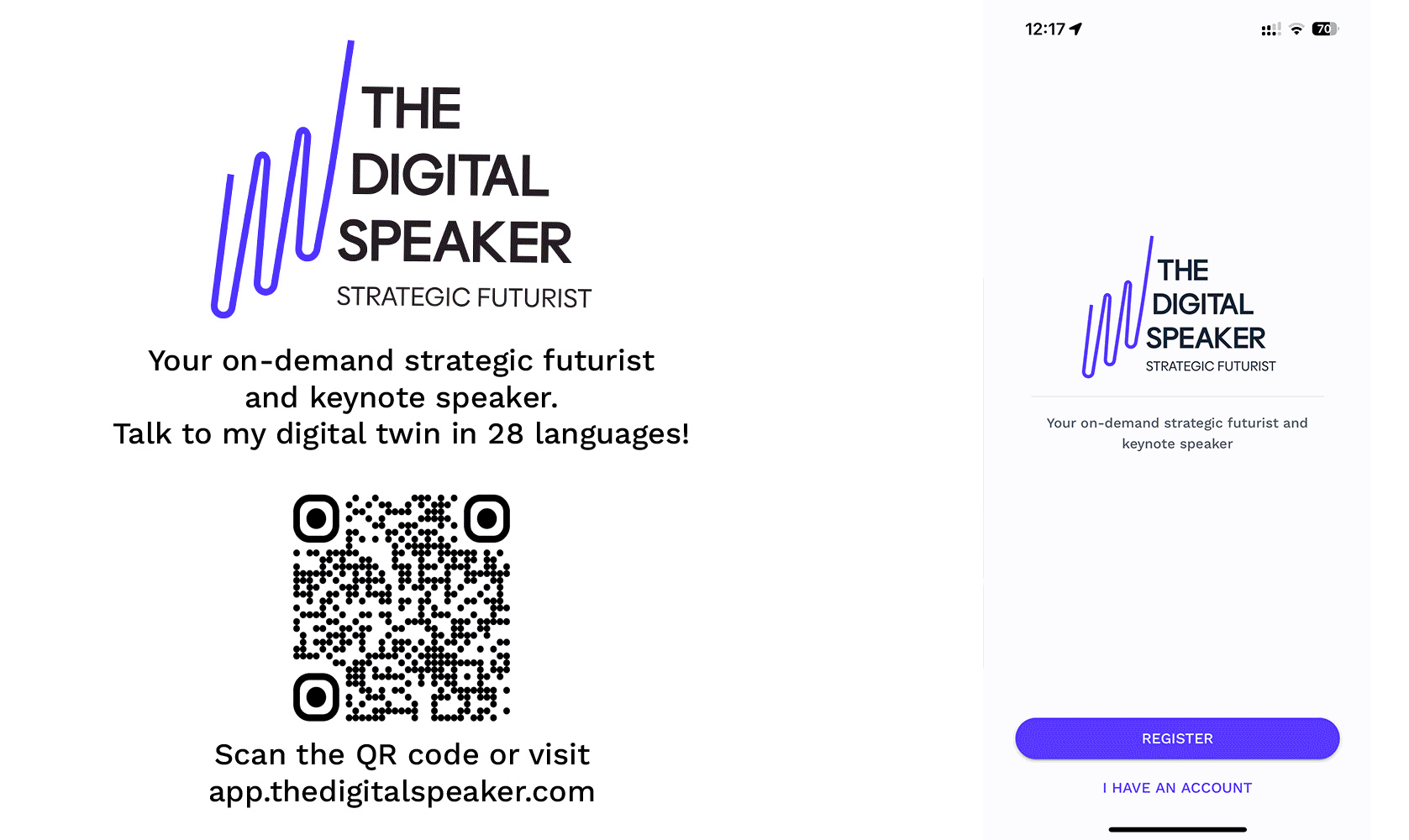
Synthetic Snippets: Quick Bytes for Your Synthetic Mind
Quick, curated insights to feed your quest for a better understanding of our evolving synthetic future. The below are a small selection of my daily updates that I share via The Digital Speaker app. Download and subscribe today to receive real-time updates. Use the coupon code SynMinds24 to receive your first month for free.

1. AI Phishing: A New Cybersecurity Frontier
The UK's National Cyber Security Centre warns of a new cybersecurity challenge: AI-enhanced phishing attacks. Generative AI tools, like ChatGPT, are making it harder to distinguish genuine emails from scams.
These tools can create convincing texts, escalating the threat from amateur cybercriminals. This sophistication is expected to increase cyber-attacks over the next two years, complicating efforts to identify threats.
However, AI also offers defensive capabilities, potentially enhancing system security and attack detection. This dual role of AI in cybersecurity underscores the critical need for robust and adaptive security measures. How will you protect yourself from AI scams? (The Guardian)

2. East Meets AI: A Sino-Silicon Synthesis
The Beijing-based startup 01.AI, led by AI veteran Kai-Fu Lee, is making waves in the open-source AI race. Their recent model, Yi-34B, outperforms its competitors and demonstrates a unique blend of Mandarin and English proficiency.
The move illustrates a strategic pivot in the AI domain, showcasing China's increasing prominence and the importance of open-source collaboration.
As Western companies tighten control over their AI technologies, 01.AI's approach could redefine global AI development dynamics. Will this lead to a more interconnected and collaborative AI future? (Wired)

3. Secret Search: The Dawn of Private Internet Queries
Cryptographers have made a breakthrough in private information retrieval, crafting a secret database search method, a once thought impossible feat.
This advancement, awarded at the Symposium on Theory of Computing, offers a new approach to internet browsing where user queries remain undisclosed. It circumvents the need to scan entire databases, a major efficiency hurdle in previous methods.
Though currently impractical for everyday use, this discovery opens the door to a future where internet searches could be conducted without revealing personal interests, enhancing online privacy.
However, how will this new innovation reshape our interaction with the digital world and our understanding of online privacy, and how will it affect law enforcers when criminals can use the internet knowing their history remains private? (Wired)

4. AI's Art of Imitation: Unmasking the Copycats
In a digital twist, Google News finds itself unwittingly spotlighting AI-generated content that mimics original journalistic work. The report uncovers a trend where AI, rather than aiding in the distribution of authentic news, is being manipulated to replicate existing articles with minor, often humorous alterations – think "War of Stars" instead of "Star Wars."
This phenomenon challenges the integrity of news distribution, revealing the ease with which AI can be used to blur the lines between original reporting and clever mimicry. It's a reminder of the importance of careful vetting and ethical AI use in news curation, highlighting the thin line between augmentation and replacement of human efforts.
In this age of rapid information exchange, how do we ensure the authenticity and quality of what we read? (404 Media)

5. Robo-Revolution: Musk's Vision for a Billion Bots by 2040s
Elon Musk predicts an astonishing future where one billion humanoid robots could populate Earth by the 2040s. This bold vision highlights the rapid advancement and potential ubiquity of robotics in the near future.
Musk's Tesla has already ventured into this realm with the prototype Tesla Optimus, a humanoid robot. While currently limited in capability, Musk's ambitious plan involves refining and mass-producing these robots, potentially reshaping industries and daily life.
The forecast points towards a transformative impact on society and industry, echoing the exponential growth principle. However, it also raises pertinent questions about the integration of such a vast number of robots, their roles in human society, and the ethical implications.
How can we prepare for and manage this potential robotic revolution that could redefine our world? (New York Post)
2024 will be the year of deepfakes, and the first deepfake of Biden interfering with the US election has already happened.
My digital twin and I discussed these threats and what to do about them in my 2023 TEDx talk.
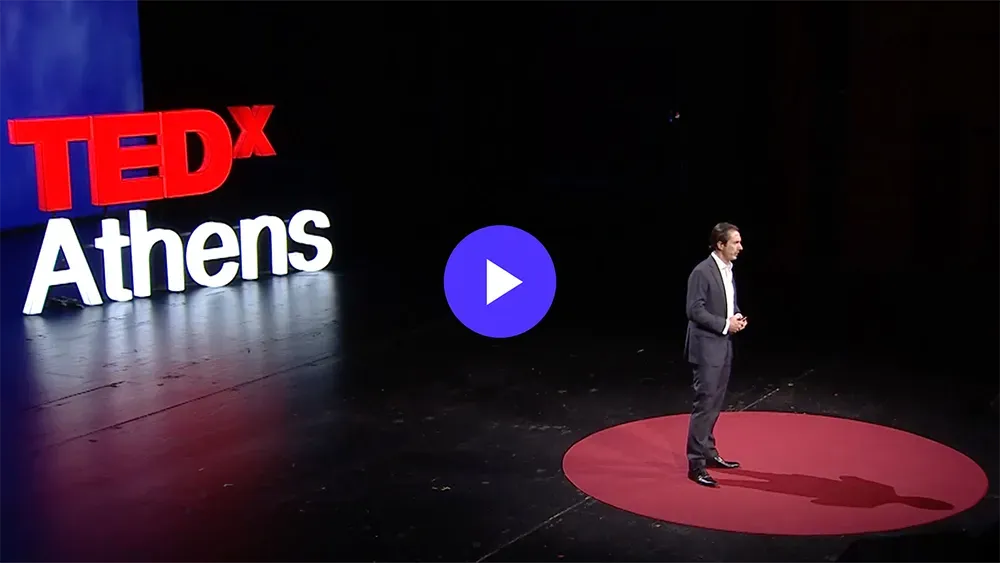
Download the full 2024 Top Ten Technology Trends Report
Know someone who needs the Synthetic Minds?
Forward it to someone who might like it too.

